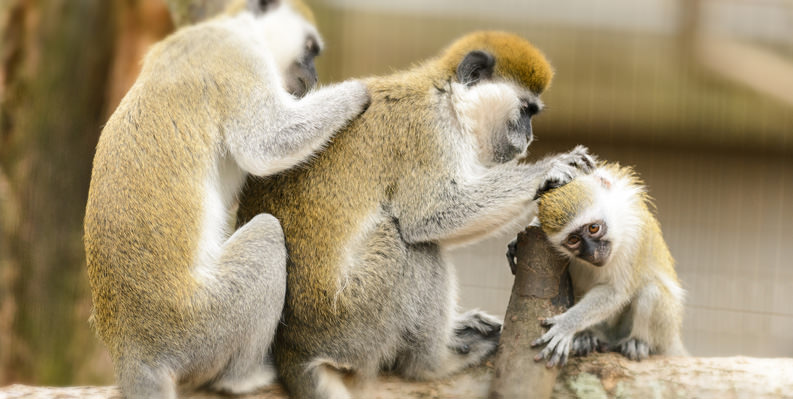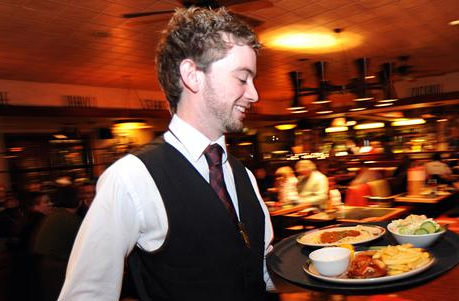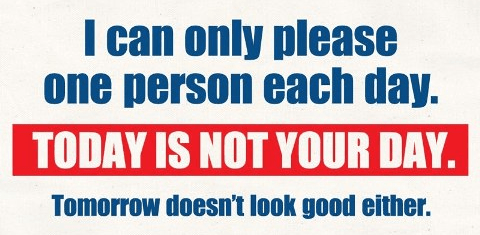-
Understanding the Psychology of Reciprocity in Business
Tue, 29 Sep 2015, in Psychology
For someone who coined and promoted sociobiology, E. O. Wilson certainly understands how we developed complex evolutionary mechanics to guide our decision-making process.
 photo credit Eric KilbyTo play the game the human way requires a complicated mix of closely calibrated altruism, cooperation, competition, domination, reciprocity, defection and deceit.E.O.Wilson
photo credit Eric KilbyTo play the game the human way requires a complicated mix of closely calibrated altruism, cooperation, competition, domination, reciprocity, defection and deceit.E.O.WilsonSure, smart marketers also know to utilize human behavior triggers that drive conversion, but rarely do they take advantage of how our brains are actually hard-wired.
At the core of our decision-mechanisms is reciprocity (I’ll scratch your back if you scratch mine), which branches out into more complex back-scratching scenarios, including: kin selection (We’re close, so I’ll scratch your back without expecting anything in return); escalation (I’ll scratch your back a little and hope you’ll scratch my back a lot); tribal reciprocity (groups that do back-scratching fare better than those who don’t); and limits on reciprocity (there are so many backs you can scratch at a time).
Reciprocity and Obligation
As humans, we tend to want to return favors, pay back our debts and treat others as we ourselves would like to be treated. This gives way to a powerful, even uncomfortable feeling that’s difficult to shake off called obligation. When most people hear the word “obligation”, this is what comes to mind:
A state of being morally or legally bound; a duty or commitmentSounds a little grim, doesn’t it? What if we gave the definition a positive spin:
A feeling of gratitude and desire to return the favorSuccessful content marketers are masters of playing on their audience’s feelings of obligation. They know how to skillfully invoke reciprocity with the amount of value they pack in their content, all while giving it away in large quantities.
When a need gets established for your product or service, your audience will act on that need without any additional marketing material or sales strategies on your part. The power of obligation and value of your content is all you need to get started.
Kin Selection
Many work at a restaurant at one point in their lives. Not many have the opportunity to see what’s behind the scenes of an expensive, busy, five-star restaurant. During my college years, I bussed tables at the top steakhouse in the city because my friend was close to the owner. It was exhausting, competitive, ego-driven and repetitive. Did I mention it was exhausting?

It was at this restaurant that I learned what good food should taste like, what real escargot should smell like and how great salad dressing should pour like (we made ours from scratch). It’s also the place where I learned the definition of customer service. It was about attentiveness, listening and catering to a customer’s every need. It’s a policy of giving: free bread, sorbet, snacks – even a complimentary drink if a table wasn’t immediately ready for the customer.
It can be said that my former restaurant practiced reciprocity on the basis of kin selection. Customers that are inconvenienced by waiting are elevated to a higher status and are treated better by default.
This is a clever marketing technique as free snacks or drinks make you feel welcome and boost your appetite. You’ll now be in a better mood and likely to spend more than you originally planned for.
Escalation
Dennis Regan, a professor at Cornell University performed an experiment to demonstrate how escalation in reciprocity is a foolproof strategy to increase sales.
Research subjects were seated in a room and asked to evaluate painting. In the test case, the researcher (identified as another research subject), would leave the room and return with drinks for the subject. In the base case, the researcher would also leave the room and return with nothing.

After some time, the researcher would turn to the subjects and ask them if they’d like to buy a raffle ticket, leading to a primer that if enough tickets were sold, a $50 prize was on the table.
After the experiment was run on a number of people, it was revealed that research subjects who received a drink were not only more likely to buy raffle tickets – they bought many more tickets than subjects who received no drink.
These findings demonstrate that when you give something away, you’ll get it back plus more. How much more depends on what actions you take after the fact.
Tribal Reciprocity
Humans are believed to have evolved a number of psychological adaptations that incline them to be more cooperative in reciprocity with members of their tribal in-group.
In prehistoric times, how quickly you learnt from the tribe was the difference between survival and death: How to find food, how to protect yourself from the harsh environment. Customers always use their social circles to find answers: Where to find the right shoes? Who makes the best tacos in town? So if a brand provides answers that customers want, then it’s a brand worth remembering.
Michael Bayler, co-author of “Promiscuous Customers” says that we use the web to “filter, resist and reject uninteresting messages, so that the tribal consumer is quite happy, amusing himself in his own digital sandpit”. Once your content ends up in the digital sandpit (the individual’s social network or community forum) it will be seen, interacted with and propagated within that circle.
Limits on Reciprocity
The web is limitless but our good side is a finite resource. There are only so many hours in the day, so many bytes of data we can broadcast and so many relationships we can maintain without burning out.
In 1992, Robin Dunbar came up with a number completely by accident while correlating primate social groups with social group sizes in humans. Calling it the “Dunbar Number”, he argued that humans can comfortably maintain 150 stable relationships. Larger numbers would require restrictive measures such as communication limitations, time spent with each other and… that tingling sense of indifference that would come about occasionally.

What’s remarkable about this experiment is how it connects personal relationships with limitations that human brains place on these relationships. Relationships, whether they’re face-to-face or online, focus on the act of sharing experiences.
Since relationships are reciprocative by nature, they are bound by the context in which they occur. Our social media, we’re limited to liking, sharing and noticing when our friends watched a certain cat video on YouTube. For example, if you watch a video with a friend in your presence, you’d likely respond differently (such as laugh louder) than if you shared it on your friend’s wall on Facebook.
In Conclusion…
We see reciprocity in action all around us. It’s free cups of coffee at a book signing event, food samples at the grocery store & free notepads to everyone that walks into the local bank branch.
At its basic level, reciprocity is all about making your customer feel special. The timing, the personal touch and usefulness of whatever it is that you’re offering all tie into the customer experience provided by your help desk.
Tags: psychology



